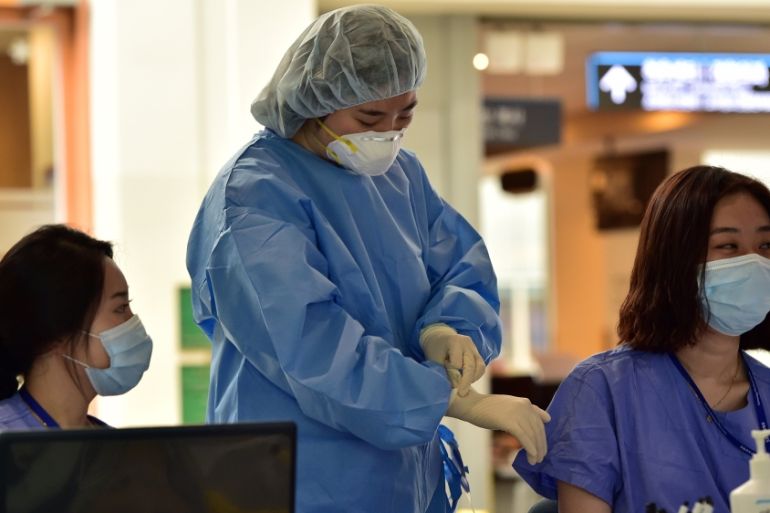S Korea says it is ‘virtually free’ of MERS
Only one person in South Korea is still testing positive for virus that killed 36 people and sickened scores.

South Korea says it is now virtually free of the deadly Middle Eastern Respiratory Syndrome (MERS) virus that killed 36 people and sickened nearly 200 since an outbreak was declared in May.
On Tuesday, Prime Minister Hwang Kyo-ahn told a government meeting the country had not seen a new MERS case in more than three weeks.
Keep reading
list of 4 itemsSecond MERS case confirmed in the Philippines
S Korea to jail people defying MERS quarantine measures
Two Seoul hospitals suspend services over MERS outbreak
|
|
More than 16,000 people had been isolated at hospitals and homes as the government attempted to thwart the spread of the disease, and the last person was lifted from quarantine on Monday.
Twelve people remain hospitalised in South Korea and under treatment for MERS although only one was still testing positive for the virus, the health ministry told Reuters.
“It is the judgement of medical experts and the government that people can now feel safe,” Hwang said in the meeting, according to the prime minister’s office.
MERS was discovered in 2012 and the cases had been mostly centred in Saudi Arabia before the outbreak in South Korea.
The MERS virus belongs to the family of coronaviruses that includes the common cold, and can cause fever, breathing problems, pneumonia and kidney failure.
Should we be worried about the MERS virus?
Experts say South Korea’s overcrowded emergency rooms and hospital wards might have contributed to a wider-than-expected transmission of the virus, which usually spreads poorly between people.
South Korea’s habits of “doctor shopping”, or visiting multiple facilities to treat the same infection, and having many friends and family members visit hospitalised patients also might have contributed.
The public alarm over MERS rattled South Korea’s economy, which posted its slowest quarterly growth in more than two years in the three months to June.
The Bank of Korea partially blamed the slowed growth on sapped consumption as foreign tourists cancelled visits and people stayed home in fear of infection.